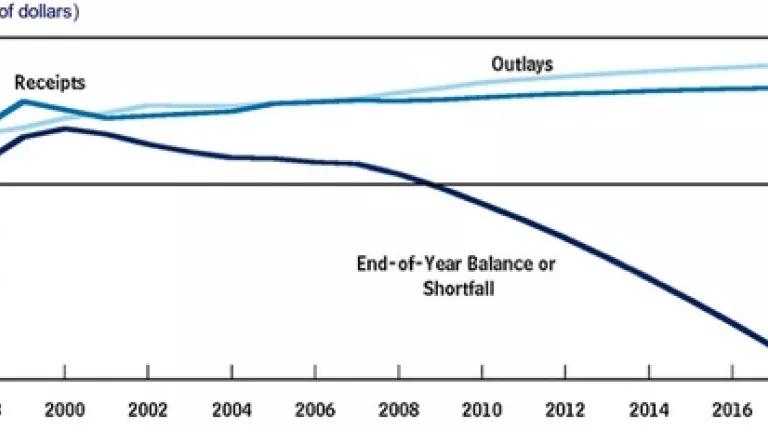
This week we have confirmation that the Republican Leadership has hijacked the transportation bill, with Congressman LaTourette of Ohio confirming that the bill was written by Speaker John Boehner (although LaTourette himself, along with many others, doesn’t support it). This helps to explain why the bill is larded with extreme measures, including bills passed last week that would annihilate dedicated funding for public transportation (see a report on that here) for the first time in thirty years, slash public oversight required thanks to the 40-year-old National Environmental Policy Act and for the first time ever tie the federal transportation program to speculative drilling revenue.
Thanks to the Congressional Budget Office, we now have an idea of just how fiscally irresponsible this last scheme would be. This nonpartisan group of green-eyeshade analysts has examined the three bills voted out by the Natural Resources Committee last week. Here’s what they find:
- H.R. 3407, which would open up the Arctic National Wildlife Refuge for new drilling would generate $1.5 billion in federal revenue during the House Republican Leadership transportation bill’s span 2012-1016;
- H.R. 3408 which promotes commercially unproven oil shale drilling would generate $5 million (all in 2016); and
- H.R. 3410 which mandates new drilling offshore would generate $508 million 2012-2016.
The grand total? A bit more than $2 billion over 5 years. This is DWARFED by the need. From 2008-2010 alone the Highway Trust Fund had to be shored up with $35 billion of transfers from the general fund. Here’s a graph showing the future of the fund as projected by CBO last summer:
In other words, these bills touted as the panacea for a revenue-starved transportation program don’t prop the program up at all! As Taxpayers for Common Sense has noted this is fiscally reckless. And as they, along with the Competitive Enterprise Institute, the Reason Foundation and NRDC have noted, it violates the “user pays” funding principle that has underpinned transportation investments for at least the past half-century.
Fiscally reckless. Environmentally damaging. Attacks anyone who rides transit, walks, or bikes by swiping funding for those options. It’s time to kill this bill.
